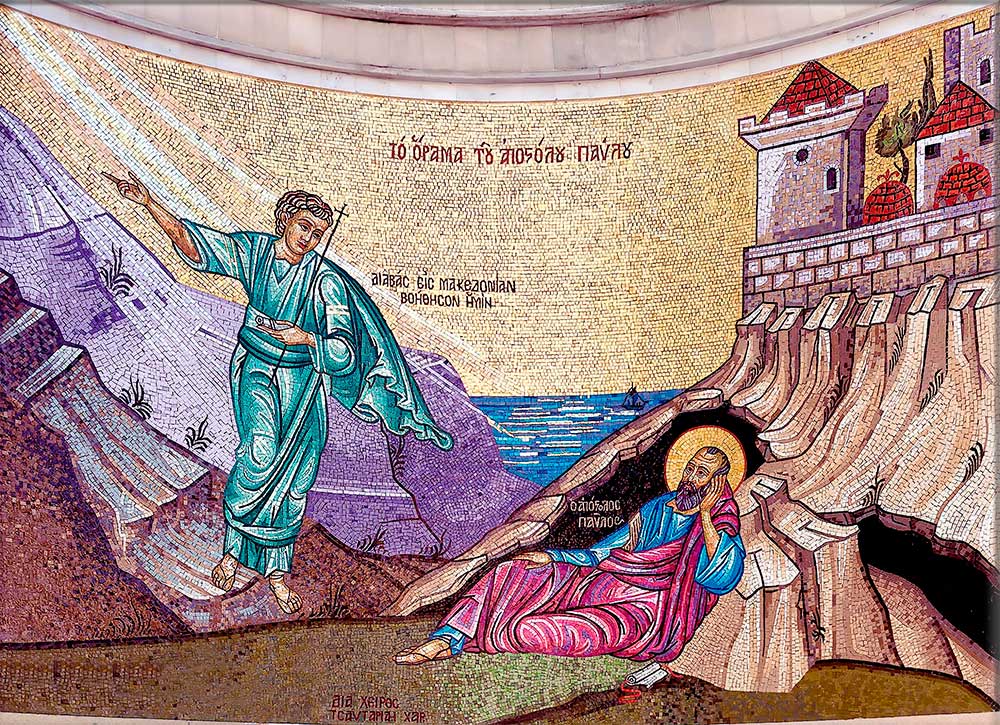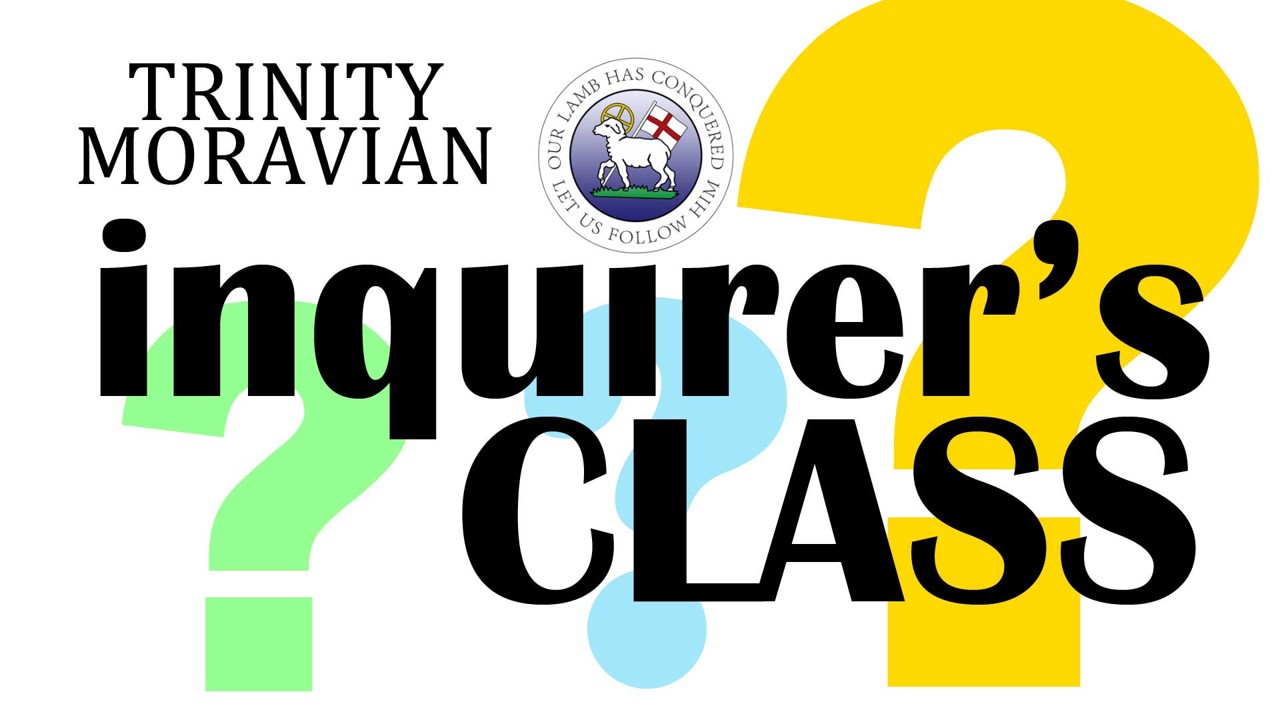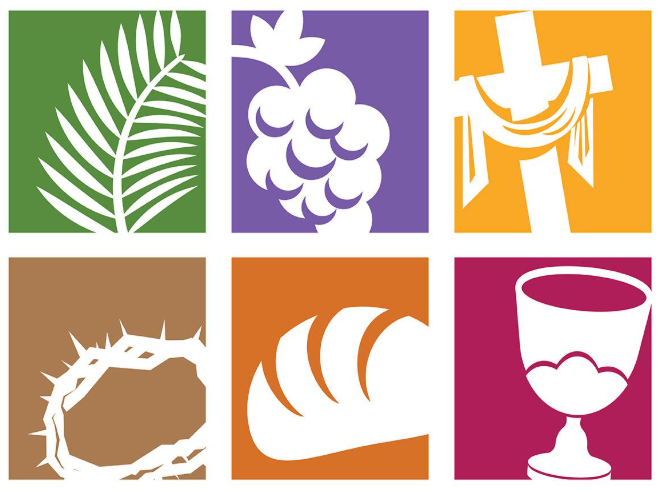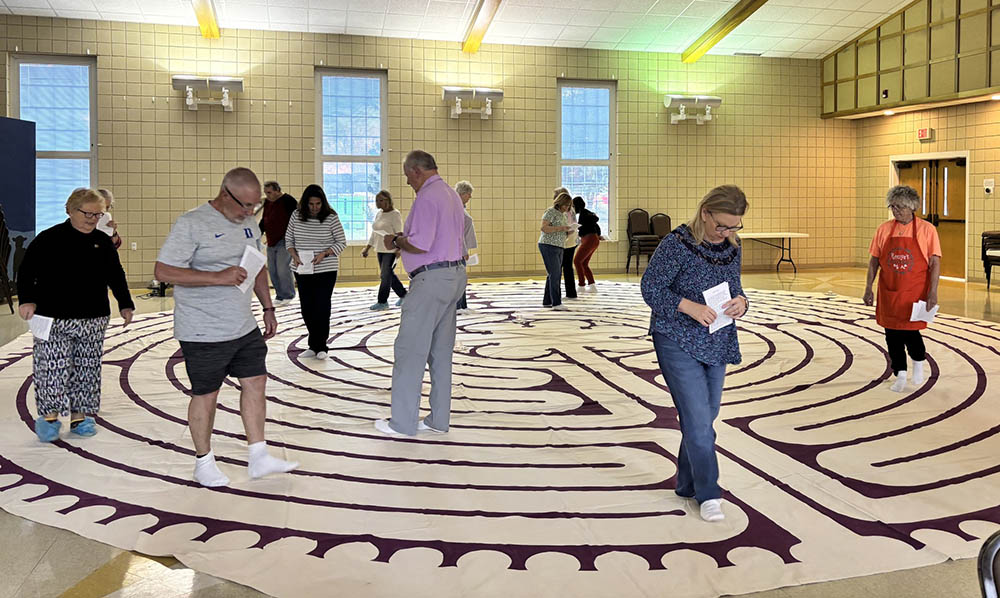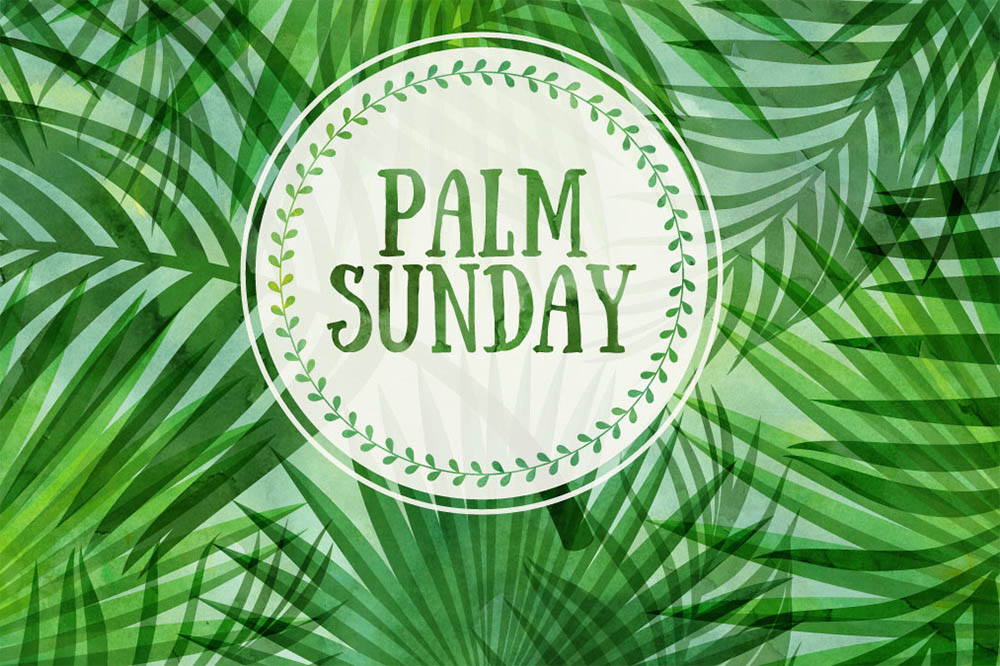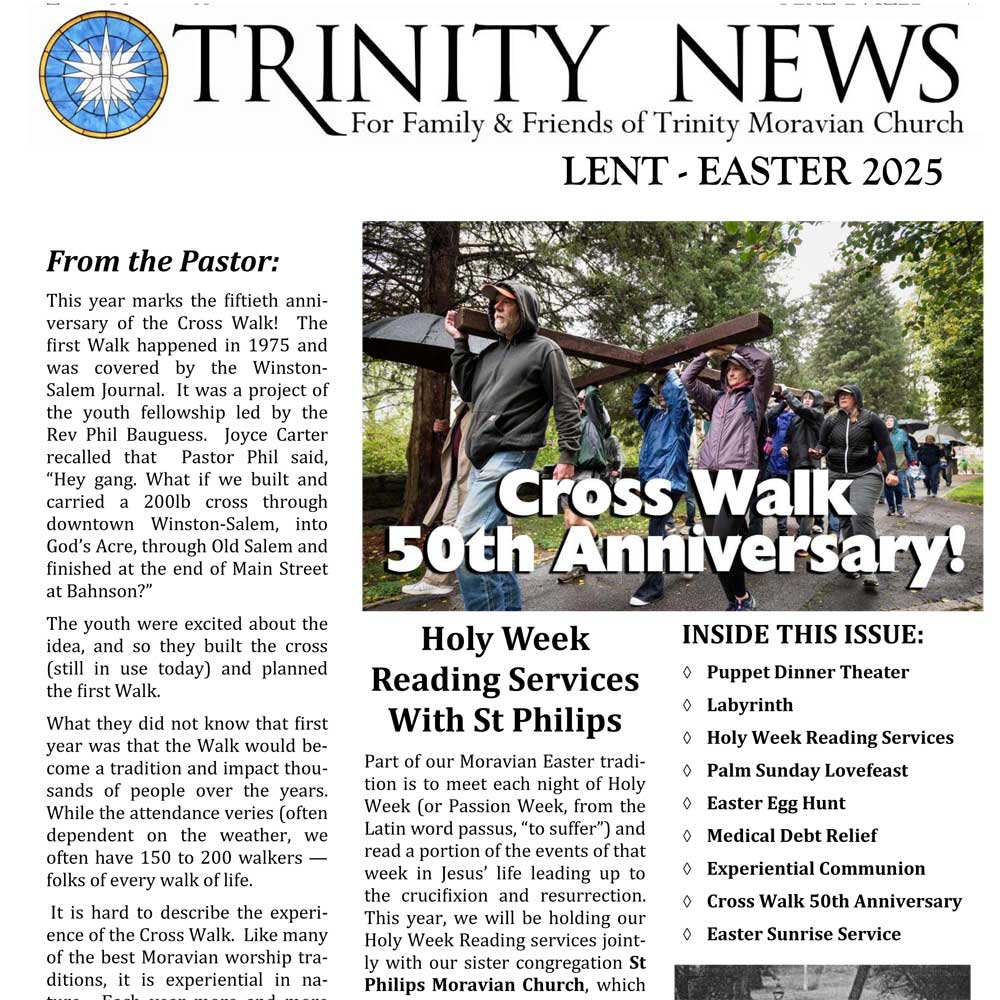Sermon from Trinity Moravian Church – May 22, 2022
Based on Acts 16:9-15 and John 14:23-29
In the lesson for this morning, Paul is in Troas. This is in modern-day Turkey, and in earlier centuries was known as Troy — as in “Helen of.” He has a vision, a dream or something, of a Macedonian man begging for Paul to “Come over to Macedonia and help us.” Not too unlike when Anthony Ulrich begged the Moravians to go to St Thomas and teach the slaves about Jesus.
So Paul didn’t hesitate – he got on Travelocity and booked a flight to Macedonia. Well, maybe not – since they didn’t have the internet or airplanes, he went down to the dock and booked passage on a ship. And as always happens, there was no direct flight. He had to have a layover in Samothrace, then hop over to Neapolis, and from there to Philippi, “which is a leading city of the district of Macedonia and a Roman colony.” Macedonia is the region north of Greece. In modern times, it borders on Bulgaria, Kosovo, and Serbia. This journey back then probably took the better part of a week.
Now I want you to remember that these were the days when it was quite controversial to preach the Gospel to a Gentile. Most followers of Jesus, followers of “The Way,” were Jews who believed that you had to first be Jewish to become what later became known as “Christians.” Paul’s idea that he should carry the Gospels to un-Judaified Gentiles was as controversial then as anything we have going today. You’ll recall that last week, we read of Peter’s vision an Acts 11 of the sheet lowered from heaven filled with animals that were considered ritually unclean for Jews. When Peter reacted with revulsion, saying that he would never eat anything unclean, the voice of God told him that “‘What God has made clean, you must not call profane.” Peter understood that this was not a vision about dietary rules – but about people. He realized that Christ’s salvation extended to all, not just to the Jews. And we’re quite lucky that happened, because we are the Gentiles – I don’t know any member of Trinity who has a Jewish mother! Now there were a number of Gentiles across the Roman empire who had converted to Judaism. But Paul was going beyond that group.
What Paul was doing – and what he continued to do – was to cross the traditional boundaries that divided people and extended the grace of Jesus Christ to all. And that’s great because it is outside of those boundaries that the great holy moments happen. We think of the “church” as this building, and think of “having church” as something that happens inside these four walls at 11 am Sunday. But the Kingdom of God is something that happens out there, in the streets and the hospitals and schools and places of business.
One church consultant whom I respect recently wrote, “Imagine a restaurant that is only open one hour a week – and when you go there, they tell you what you must eat!” Wouldn’t last very long, would it? But that’s how the church has operated for many centuries – you come here at the prescribed time, we’ll tell you what to eat, and then you go home. And it doesn’t do much the rest of the week.
I actually knew a restaurant that operated that way, in Bethlehem PA. I think her name was Mama Rosita, and she had the first floor of her house on the South Side of Bethlehem packed with tables. One night a week, she’d open for business. There was no menu; you’d eat whatever she served and like it. And you could not have your desert until you had finished your vegetables. I think the first-year students at Lehigh University who were homesick went there for a little dose of home, a little taste of home cooking and Mom’s discipline.
But you know a restaurant like that in any other environment would close up right away. We like our menus, our choices. And we want it when we want it. Maybe you’ve had the experience of visiting a fast food restaurant recently when they didn’t have enough staff, and waiting and waiting and waiting. How upset you got!
But we’ve run churches that way for centuries. In reality, the most holy stuff happens outside these walls. This sacred hour on a Sunday should be a time for believers to recharge, to worship God – but then to go out and cross those boundaries into the real world where stuff happens!
The Rev Dr. Lillian Daniel is a UCC pastor. She wrote a while back about a profound experience early in her ministry. Right out of seminary, she was associate pastor at a large church. They had a sexton named Tom. A sexton is like a church custodian, the guy with the keys that cleans up and closes up and fixes things. Tom was, she wrote, “A fifty-year rock and roller who had turned his life around, Tom the sexton had finally met the right wife, finally quit drinking, finally quit drugging and finally started to think about one day quitting smoking.” But he had a terrible experience with church as a young man which wounded him, and though he worked enthusiastically for the church, he never showed up at 11 am Sunday.
Associate Pastor Daniel lived in a parsonage next door to the church, and would often have Tom come over to fix things. They would often have a cup of coffee and he would talk about God and the meaning of the universe – you know, idle chit-chat.
Lillian Daniel moved on to another church but stayed in touch with Tom. A few years later, she got the call that Tom had lung cancer and was in the hospital dying. Would she come to visit? She sat there with Tom and his wife. His wife held Tom’s hand. Lillian sat at the foot of the bed and held his foot, thinking of the washing of feet in the Bible. She was still there when Tom passed, and the foot started to get cold. This was the first time she had ever been present while a person died. She wrote, “I was just a former associate minister, one who had stayed too short a time to affect much at the church at all, but suddenly there I was the Church of Jesus Christ writ large, present at the moment when Tom would die, and I would witness my very first experience of life leaving one body and going somewhere else.” It was a holy, frightening, awe-filled experience.
I have forgotten how many people I have sat with as they died. It is indeed a overwhelming moment, often very quiet, and often very holy. Maybe you have experienced that with a family member. But that’s an example of where the kingdom of God happens, not inside these walls but out in the world, in a bedroom, or hospice, or a hospital room.
When Covid came and shut down all our institutions, it accelerated the revelation that much of ministry happens outside this hall. If we are to share the love of Christ, if we are to be His hands and feet, then that happens out there. Like Paul, we need to be ready to cross the boundaries that the world and the organized church love so much. We need to reach out to people who are not like us, people who don’t know our hymns, people who have no ideas what a liturgy is.
This church has a remarkable history of doing that. Sunnyside, LOGOS, Anthony’s Plot, Freedom School, these are all ministries that cross the barriers with the love of God. I know for a fact that Sunnyside and LOGOS have changed the lives of many people who never became members of this church – but we were the hand of God in their lives at a crucial moment. At our best, we’ve always been willing to cross boundaries.
But today it is even more needed. I have spent the last six months having many conversations with young people, often young people who have already left the church. Many of them have tried Sunday at 11, and found it less than fulfilling. The church services they have experienced feel contrived to them, and they are seeking for somethin real, something authentic. They want to do something that makes a difference, not hear about someone else making a difference. Or, like Lillian Daniels’ friend Tom, they have been hurt by the church – or someone in the church. They have walked away. But that doesn’t mean they aren’t seeking after God, looking for the Kingdom. They are.
When Paul arrived at Macedonia, he met a woman named Lydia in Thyatira, which is the modern-day Turkish city of Akhisar. She was a dealer in purple cloth, which means incredibly expensive luxury fabrics. Purple in those days was worn only by royalty or the mega-wealthy. The dye had to be made from the purple murex, a sea snail. Thousands of the snails were needed to make a small amount of dye. She might not have been mega-wealthy herself, but she was undoubtedly a well-off tradeswoman. She was a “worshipper of God,” one who revered God but was not a Jewish convert or a Christian yet. Think “spiritual but not religious” in our time. But the Spirit opened her heart so that she could hear what Paul had to say. This is just as the early Moravian missionaries’ gentle evangelism. No Bible-thumping, no confrontation: they waited until they sensed that the Spirit had prepared the way in a person before they began talking about faith.
When God calls you to cross that boundary, as happened here with Paul in a vision, what will you do? Will you step outside these walls? Will you befriend someone completely unlike you? Will you grow from the experience, and find together those holy moments when lives are changed and lives renewed?
Featured photo by Ed Serrano, mosaic of Paul’s Vision at a basilica in Berea, Greece.


